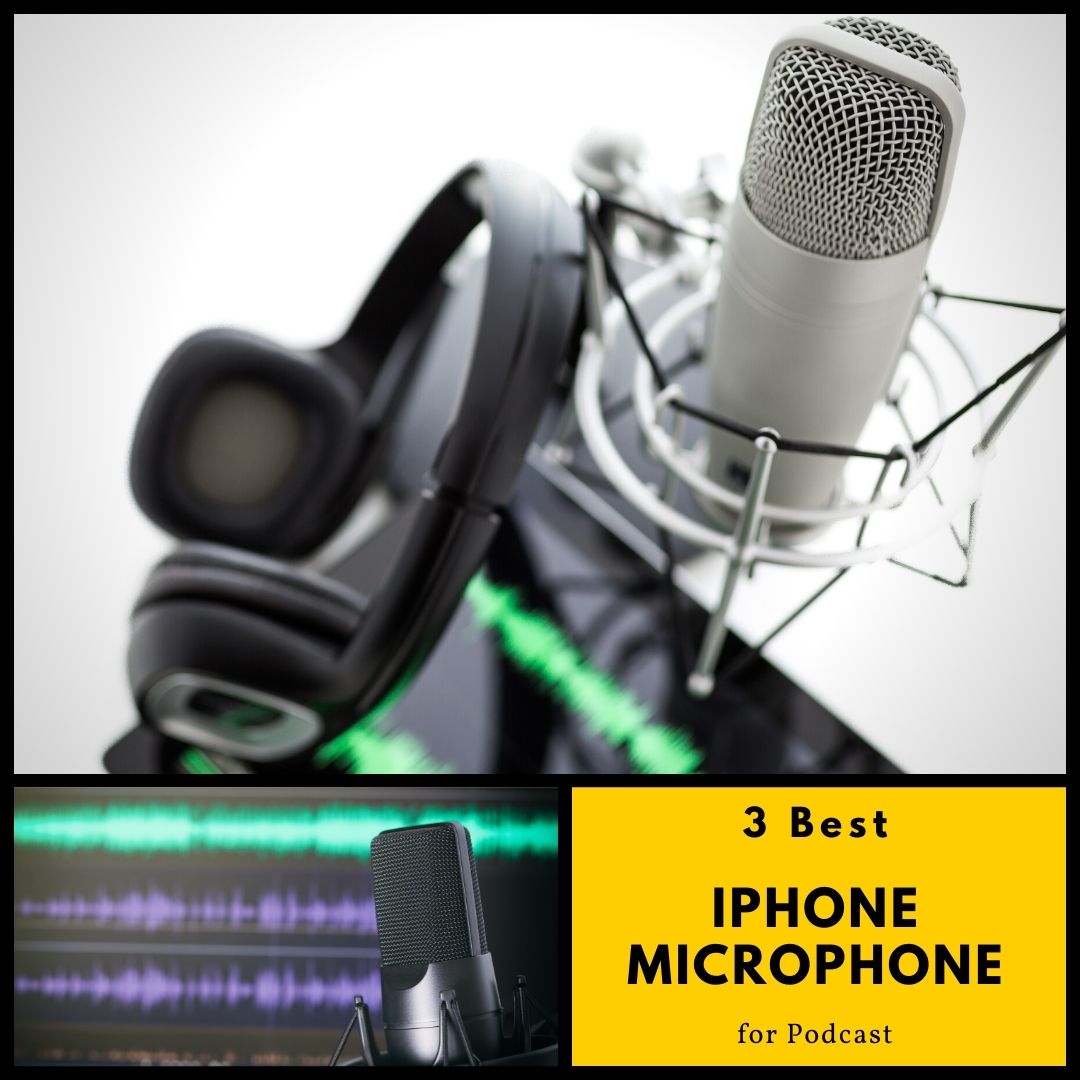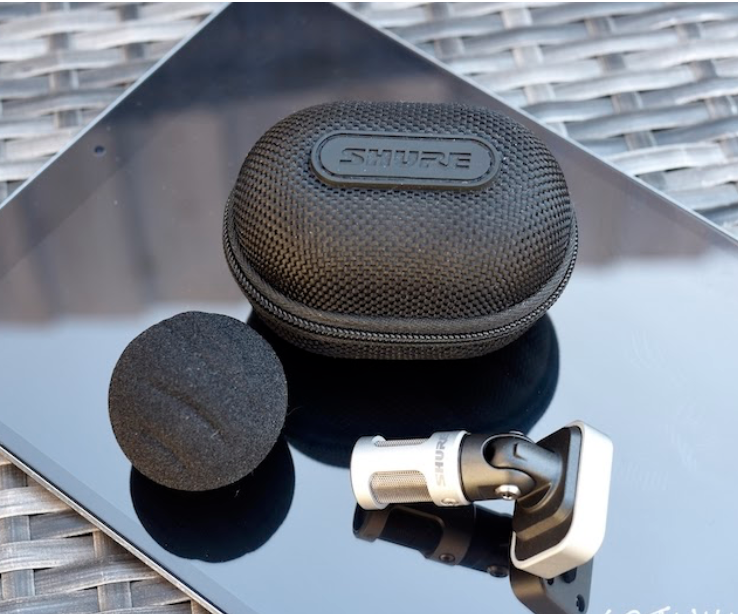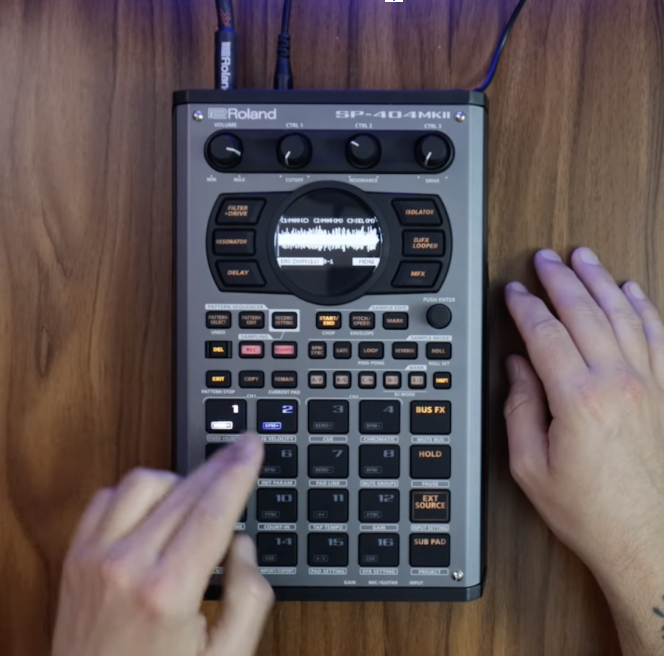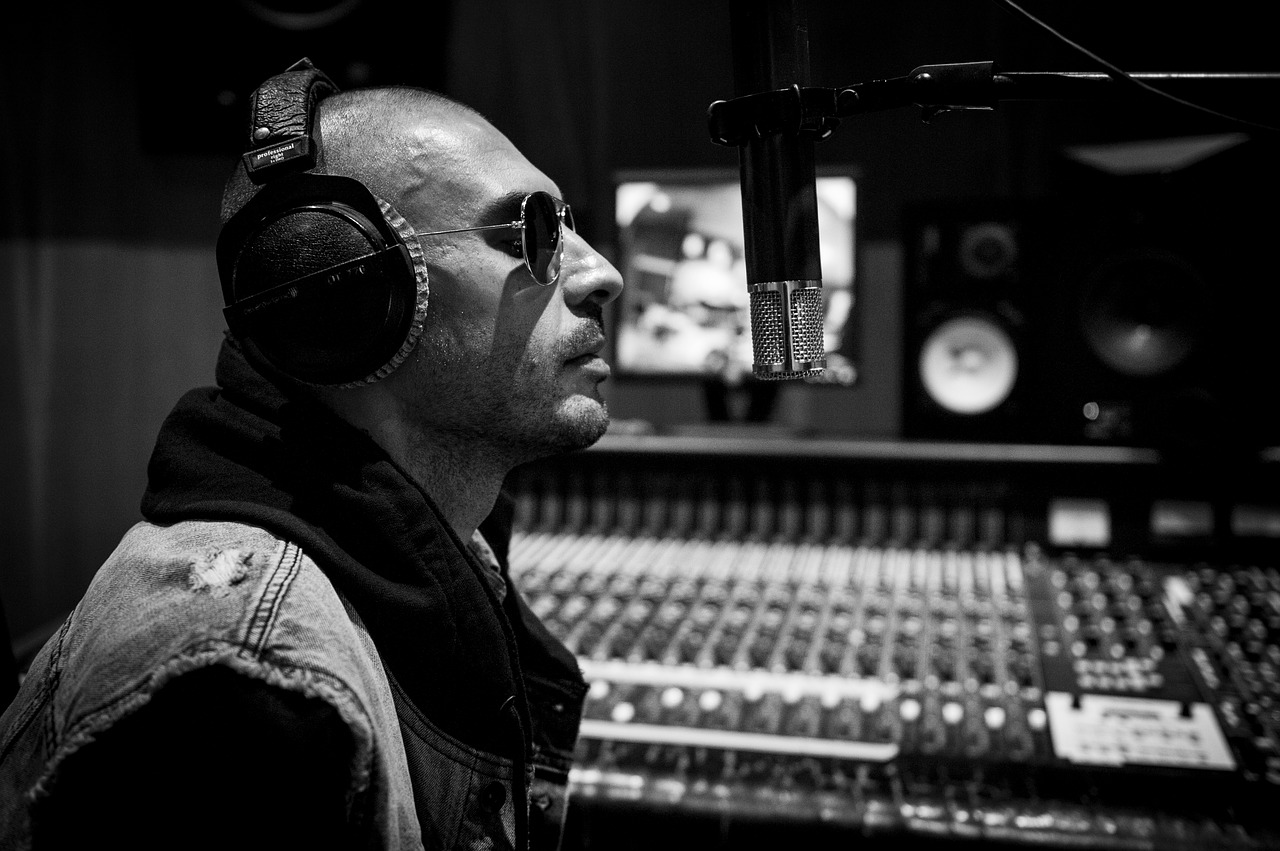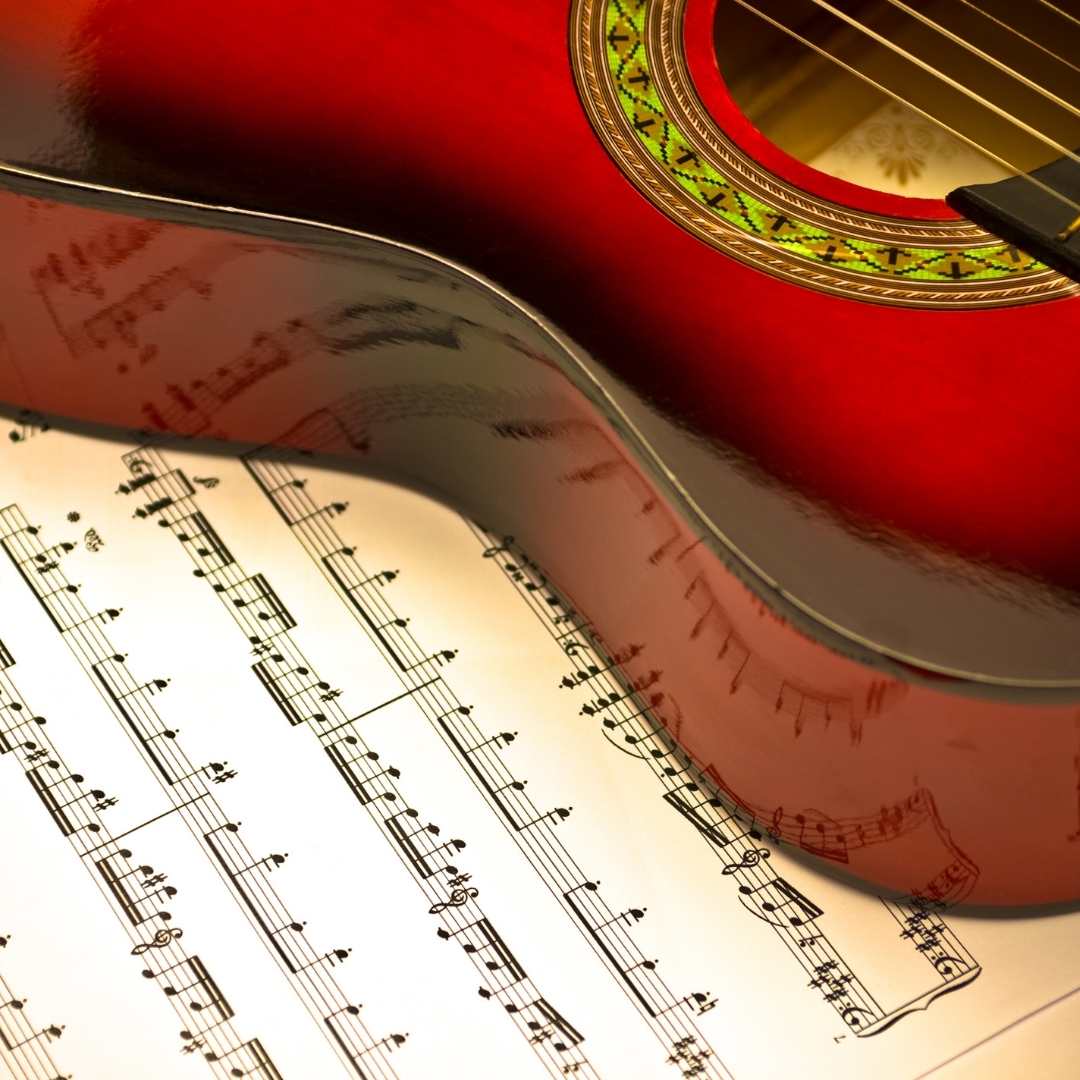
Best Way to Learn Music Theory for Guitar
November 26, 2021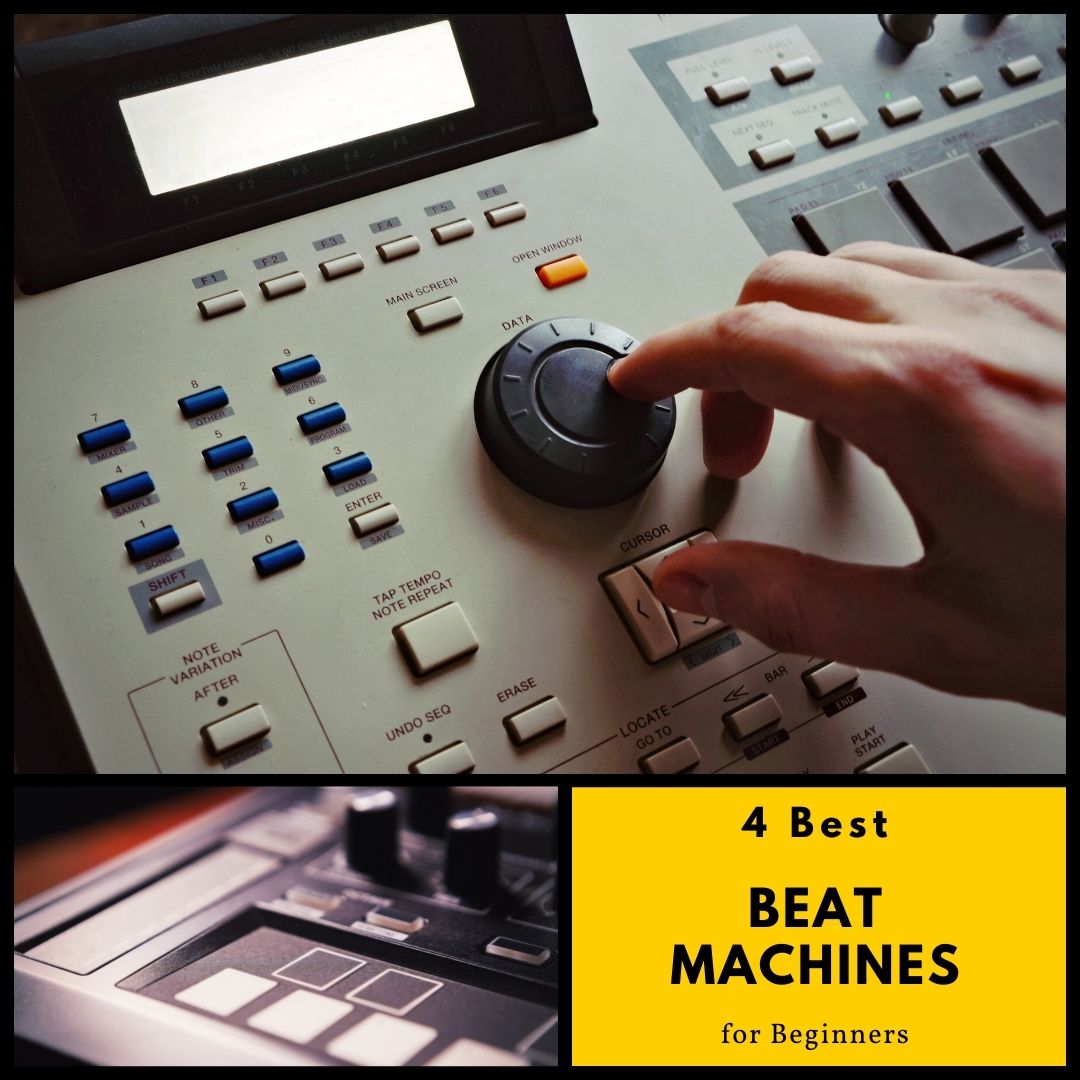
4 Best Beat Machines for Beginners
December 1, 2021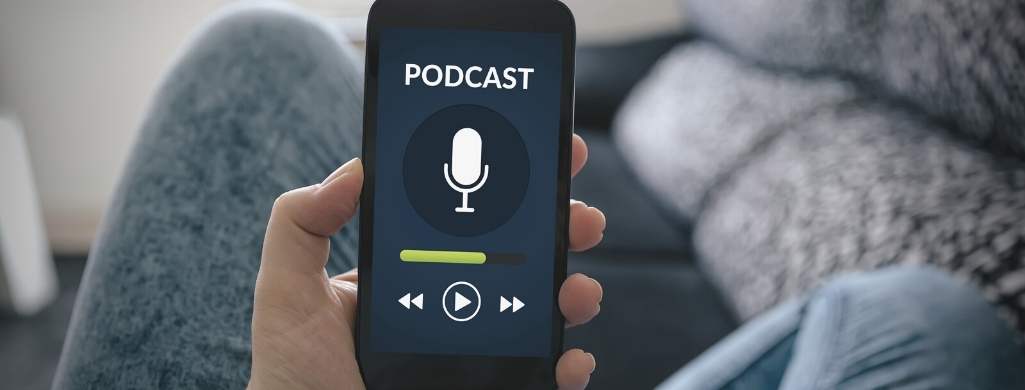
Back in the day, podcasting meant buying a bundle of pricey equipment and setting up in a sound studio. Today, an iPhone and a decent microphone are more than sufficient.
This simpler setup slashes the initial budget, which makes starting a podcast less risky in terms of financial investment. In addition to that, it’s quite portable, so arranging to have interviews in remote sites becomes a breeze.
It’s not surprising that many social media pros and beginners alike are shifting to this simple solution. And if you’d like to know what’s the best iPhone microphone for podcasts, read on. We listed here the highest contenders, and at the very end, we’ll reveal our top choice.
Our Recommendations of Best iPhone Microphone for Podcasts
There are various setups podcasters usually use. and each one requires a different mic. The following list caters to the needs of a single speaker, interviewing a guest, or hosting a group of commentators.
Connectivity matters too, so some of the listed mics are wired, while others are wireless. Lavalier mics are practical devices that many podcasters use extensively, so we included these as well.
The following reviews cover technical details. So if you find yourself unable to make a final decision, no worries at all. There’s a dedicated section after that explaining how to choose the right mic.
1. Movo Smartphone Podcast Recording Microphone Kit

Pros
- 2 mics with stands and filters
- Audio interface for multiple devices
- Effective noise removal
- Easy connectivity with several options
- Table stand with adjustable positioning
- 1-year warranty
Cons
- It’s a bit of an overkill for a one-man show
- The cardioid mic could pick up some noises from the periphery
Two things concern the iPhone folks, and these are connectivity and compatibility. Quite often, there’s only one port to connect to one device. And usually, this means that they can either connect a mic or speakers. The Movo kit sorts out all these issues neatly.
Having sorted out the mic and speakers matter, we naturally move on to the sound quality. This cardioid mic catches the speakers’ voice loud and clear throughout the full 20 Hz to 20 kHz frequency response.
Additionally, the mesh pop filters keep the unwanted noises away. And they do that with twice the efficiency of normal filters.
This system might be a bit pricey, then again, it is an integrated tool kit for podcasters. Also, it’s a plug-and-play setup, so you can take it anywhere and start talking to the world right away.
2. Lewinner Wireless Lavalier Microphone

Pros
- No cables
- Perfect noise cancellation
- 50-ft range
- 6-hr run time after full charge
- CD stereo quality of 48 kHz
- Sound monitoring with included earphones
- Real-time mixing with phone music
- Subtitle auto-sync
Cons
- Needs regular recharging
- Could disrupt long recording sessions
Lavalier wireless mics offer a wider range of sound recording possibilities. They make movement much easier, they’re great for outdoor interviews, and they aren’t bothered by cables.
The only downside for these mics is the need for recharging. However, with a 6-hour window, this might not be a big issue for the Lewinner mic.
In addition to the added flexibility, you get some seriously awesome real-time features. So you can monitor the sound signal with a decent set of earphones. And you can make good use of the various software perks, like music mixing with the incoming voice signals.
This kit comes at a seemingly high price tag. But that’s quite justifiable considering its quality and features.
3. Mercase USB Condenser Microphone

Pros
- Compatible with almost all systems
- Fully adjustable mic
- Easy setup
- Sound monitoring
- Versatile functions
- Comes at a great price
- Lifetime warranty
Cons
- Needs an adapter to connect with an iPhone
- The sound clips a little near the higher frequencies
The connectivity method of this mic solves a big problem in a simple way. The limited ports on an iPhone are an eternal problem for users. So connecting the mic to the USB port instantly frees up the lightning jack for a headphone.
This way, sound recording, and simultaneous monitoring become a breeze. And the best part is that this setup doesn’t need extra gear or specialized signal splitters to work.
This simplicity reduces the price of this kit significantly. So if you’re working on a budget, then you should keep it on your radar.
Additionally, the reduced price doesn’t come with a drop in sound quality. The fully adjustable cardioid mic can work on a high-sensitivity mode to pick up the slightest sound nuances. Or, it can be set to a noise-cancellation mode which cleans up the signal from any external noises.
Do You Need a Microphone for Your iPhone?
If you’re recording a voice note that you’ll send to a friend, then the built-in mic of your phone will do just fine. However, if you’re planning on getting your words across to an audience, then you might want a more sophisticated sound device.
You’d need a mic for your iPhone for these reasons:
- It’s much more economical than the sound stage pro podcasters use.
- The sound quality is great, and the audiences like what they’re hearing when you use a good quality mic.
- It’s far more convenient to have a portable set up on your iPhone. This way, you can start podcasting anywhere.
- The noise cancellation efficiency means that you can record audio outdoors, at the guest’s premises, or in any place at all.
- Connectivity, reliability, and sound quality were often issues while recording audio on an iPhone. But the new tech sorted all this out. Additionally, new software allowed real-time editing plus many editing options.
How to Choose the Right iPhone Microphone for Podcasting
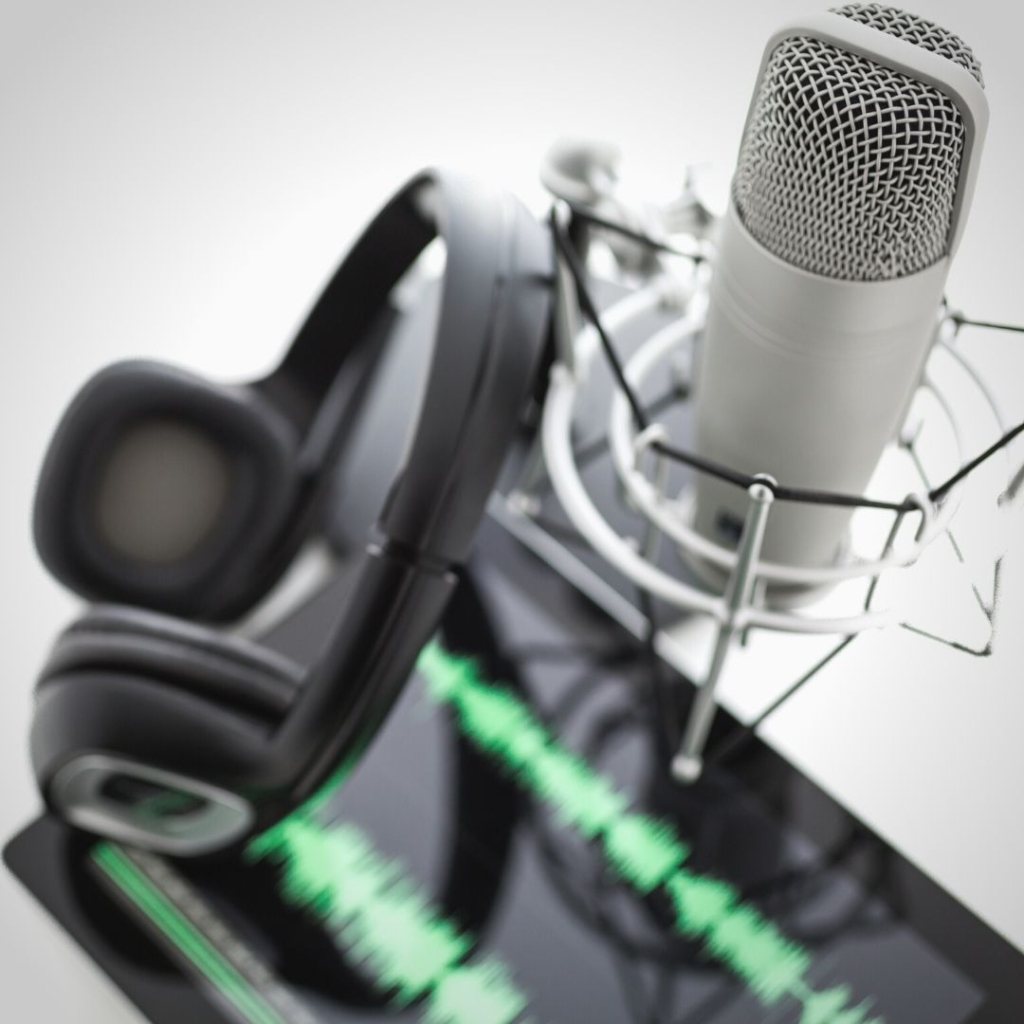
Selecting a suitable mic for your iPhone doesn’t need to be an overwhelming exercise in elimination. And you don’t need to dive too deeply into tech stuff. Just consider the following points, and you should be on the right track.
Usage
Your usage dictates your setup. Are you often podcasting from a home studio? Do you prefer outdoor interviews? Are you a solo act? Or like Joe Rogan, maybe you prefer a crowd?
The right mic should follow your podcasting style. Omni, cardioid, or figure-8 mics have their strong points and limitations. It would be best to try which one works best before committing to a specific polar pattern and mic type.
Connectivity
Wired gear is great for a sit-down setup. You wouldn’t need the hassle of recharging a mic or worry about the optimal range of coverage.
On the other hand, wireless lav mics offer far more flexibility, and they’re great for outdoor interviews.
Sound Quality and Frequency Response
You’d want a sensitive mic that doesn’t distort your voice or muffle it at both ends of the frequency spectrum. Also, it should come with suitable noise cancellation to filter out external noises, wind, or wall echoes.
What’s Next?
The best podcasting mic on this list is hands down the Movo Smartphone Podcast Recording Microphone Kit. It covers every need, current or future, that podcasters might have. The sound quality, frequency coverage, and noise cancellation of the Movo mic are simply spectacular.
You can also go with a wireless alternative. And in that case, you couldn’t go wrong with a Lewinner Wireless Lavalier Microphone. The long run time, range, sound quality, and noise cancellation are everything that an outdoor podcaster needs.
You may also like,

